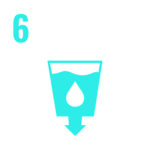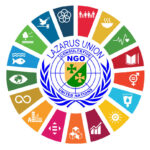GOAL 14; Life below Water

Pollution and overexploitation of the oceans are increasingly causing problems, such as the acute threat to biodiversity, ocean acidification and increasing plastic waste. A growing world population will be even more dependent on resources from the oceans in the future. Goal 14 calls for all forms of marine pollution to be significantly reduced and ocean acidification to be minimised by 2025. Already by 2020, marine and coastal ecosystems should be sustainably managed and protected. Likewise, fishing activities are to be effectively regulated by 2020. To stop overfishing of the oceans, illegal and unregulated fishing and destructive fishing practices are to be ended by 2020. Similarly, certain forms of fisheries subsidies are to be banned.
What is to be achieved?
- By 2025, prevent and significantly reduce all forms of marine pollution, from land-based activities and notably marine litter and nutrient pollution.
- By 2020, sustainably manage and protect marine and coastal ecosystems to avoid significant adverse impacts, including by strengthening their resilience, and take measures to restore them so that the oceans become healthy and productive again.
- Minimise ocean acidification and address its impacts, including through enhanced scientific cooperation at all levels.
- By 2020, effectively regulate fishing activities and end overfishing, illegal, unreported, and unregulated fishing, and destructive fishing practices, and implement science-based management plans to restore fish stocks in the shortest possible time to at least levels that ensure maximum sustainable yield, taking into account their biological characteristics.
- By 2020, conserve at least 10 per cent of coastal and marine areas in accordance with national and international law and based on the best available scientific information.
- By 2020, prohibit certain forms of fisheries subsidies that contribute to overcapacity and overfishing, eliminate subsidies that contribute to illegal, unreported, and unregulated fishing, and introduce no new such subsidies, recognising that appropriate and effective special and differential treatment for developing and least developed countries should form an inseparable part of fisheries subsidy negotiations conducted within the World Trade Organisation.
- By 2030, increase the economic benefits for small island developing States and least developed countries resulting from the sustainable use of marine resources, namely through sustainable management of fisheries, aquaculture, and tourism.
How will the goal be achieved?
- Deepen scientific knowledge, enhance research capacity, and transfer marine technologies, taking into account the Intergovernmental Oceanographic Commission’s criteria and guidelines for marine technology transfer, in order to improve ocean health and enhance the contribution of marine biodiversity to the development of developing countries, especially small island developing States and least developed countries.
- Ensure small-scale artisanal fishers’ access to marine resources and markets.
- Enhance the conservation and sustainable use of the oceans and their resources and, to this end, implement international law as set out in the United Nations Convention on the Law of the Sea.


